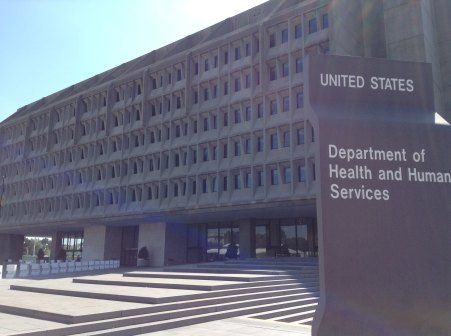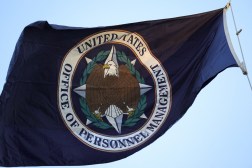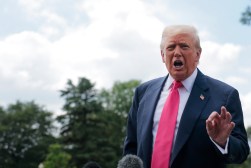OPM official defends federal telework as Trump seeks in-office policy

The Office of Personnel Management’s top official emphasized the importance of federal telework — particularly for roles in fields like cyber — on a call with the press this week, as the Biden administration enters its final days.
Rob Shriver, acting director of the government’s human capital agency, said belief that telework is “an effective management tool for the federal government” has long been bipartisan, and decisions about what a telework policy should look like depend on the role.
“What always needs to be the driving factor is what work arrangements best advance accomplishment of the agency’s mission, and I don’t think that’s a one-size-fits-all. I think those determinations need to be made at the specific job level,” Shriver said.
His comments are an apparent response to Republican criticism of remote work policies in the federal government, including GOP lawmakers, the leaders of the Department of Government Efficiency, and President-elect Donald Trump.
In a November Wall Street Journal op-ed, DOGE co-heads Elon Musk and Vivek Ramaswamy wrote that “requiring federal employees to come to the office five days a week would result in a wave of voluntary terminations that we welcome: If federal employees don’t want to show up, American taxpayers shouldn’t pay them for the Covid-era privilege of staying home.”
Shriver noted that telework helped the government withstand the global pandemic and the government learned a lot about the way to structure that work during that period. But he also said that can be useful within fields where remote work is the norm, such as cybersecurity.
He said the government’s cybersecurity needs are “immense,” and he’s worked closely with National Cyber Director Harry Coker on how to get more federal cyber talent. “The fact is that that occupation largely works from home,” Shriver said.
“Any kind of one-size-fits-all approach that doesn’t recognize the dynamics of those different occupations is going to dramatically impact the federal government’s ability to handle the most important challenges that we face,” he added.
A spokesperson for the Trump-Vance transition team directed FedScoop’s request for comment on Shriver’s remarks to comments made by the president-elect at a Dec. 16 news conference. There, Trump stated that employees who don’t return to office will be fired and criticized a telework agreement with a union made under the Biden administration.
“If people don’t come back to work, come back into the office, they’re going to be dismissed,” Trump said. “Somebody in the Biden administration gave a five-year waiver of that so that for five years, people don’t have to come back into the office.”
The comment appeared to be a response to a deal reached by the Social Security Administration and one of the unions that represents its workers, the American Federation of Government Employees. That deal preserved the department’s telework policies until 2029, Bloomberg reported last month. AFGE and the local union didn’t respond to FedScoop inquiries about the details of that agreement.
Shriver’s comments came during a call with press Tuesday touting OPM’s achievements over the course of the Biden administration. The agency also released a 12-page report highlighting those actions, including transitioning to a hybrid work environment after the pandemic, increasing the minimum wage for federal workers, and launching a new health care marketplace for U.S. Postal Service employees and their families.
In addition to his telework comments, Shriver also told reporters that Trump’s Schedule F, which would make firing workers in policy-related roles easier, is “bad policy” and that “decisions about federal hiring and firing should be based on merit and not partisan politics.”
Schedule F was an executive order under the first Trump administration. It wasn’t implemented fully, and President Joe Biden immediately revoked it after he was sworn in. Trump, however, indicated that he planned to bring the policy back on the 2024 campaign trail.
Shriver said “career civil servants are hired and evaluated based on their skills, their knowledge, [and] their abilities,” and that “their subject-matter expertise is critical to delivery of services to the American people.”
“They stand ready to implement the agenda of whoever the president is and follow lawful orders, and there are plenty of tools available to agency leadership to address individuals who may not be following lawful orders or who are performing poorly,” Shriver said.
Shriver began the call by saying that the past six years for the agency were “very difficult.” That six-year period began with the 2015 data breach that impacted the personally identifiable information of current and former federal employees, included the Trump administration’s efforts to merge the agency with the General Services Administration, and encompassed the global pandemic.
Since then, Shriver said OPM has taken the number one spot for customer satisfaction in all of government, became one of the top-10 best places to work in the federal government in its size category, and scored an “A” on its Federal Information Technology Acquisition Reform Act, or FITARA, scorecard, which tracks agencies’ IT progress.
Shriver said he was “proud of the transformation” the agency has had during the past four years and praised the workers at OPM.
“The team that is in place at OPM is talented, committed and dynamic,” he said. “They are ready to support the new administration as they come on board next week.”






